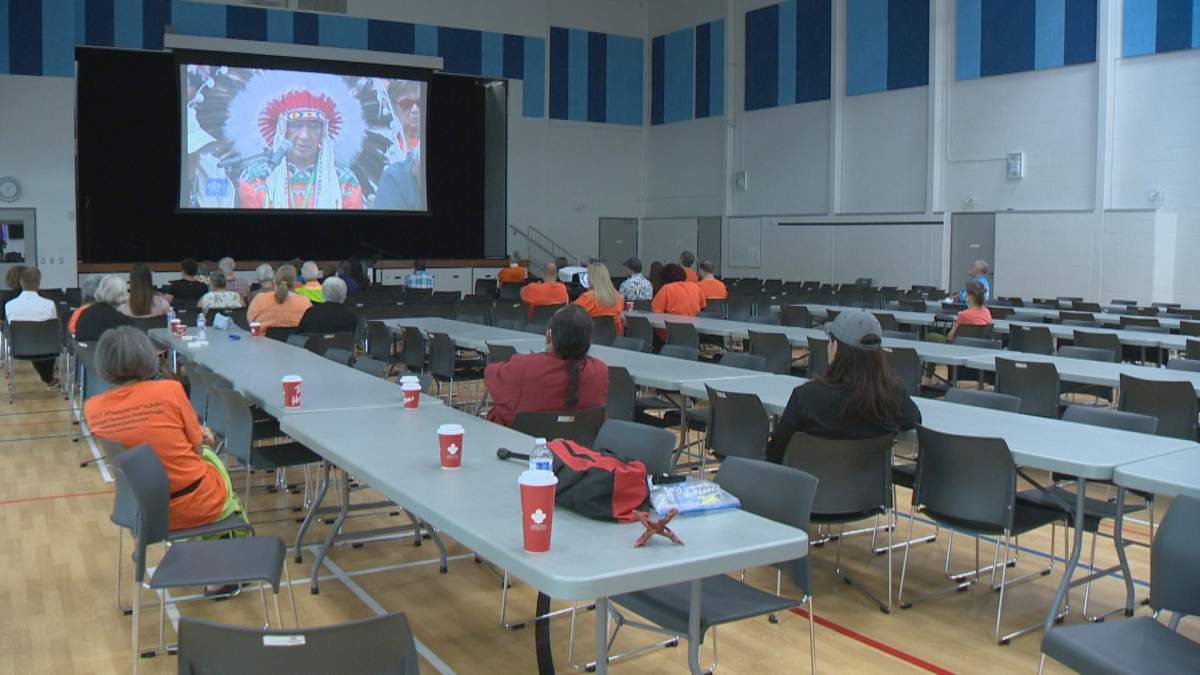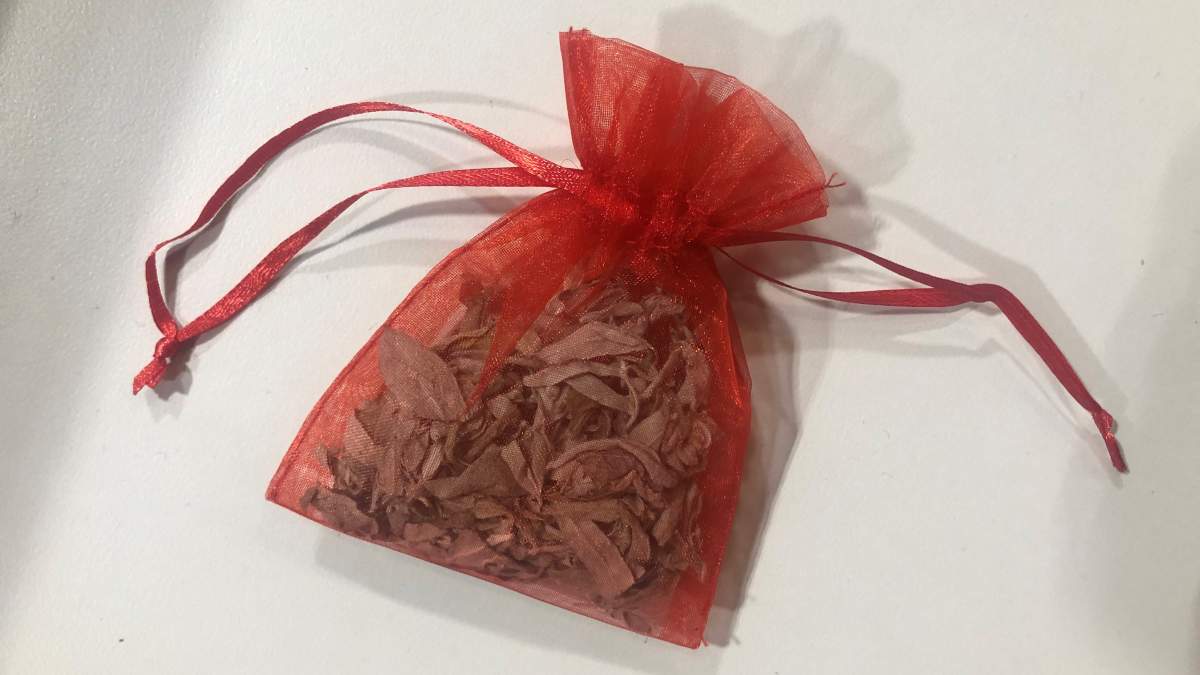While the words were spoken a province away, Pope Francis’ historic residential schools apology made on Canadian soil echoed strongly in Saskatchewan as well Monday.

In Regina, dozens of elders, residential school survivors and their loved ones gathered for a community viewing of the events on Maskwacis First Nation in Alberta.
“Listening to that apology, yes it brought up a lot. I cried for our elders and our kokums and moshums,” said event organizer and co-emcee Phyllis Littletent, a Cree woman from Kawacatoose First Nation, speaking of grandmothers and grandfathers.
In explaining the significance of the moment, Littletent spoke of her late kokum who was a residential school survivor.
“She passed a few years ago but this is something I remember her saying: ‘one day I hope to see that’. She wasn’t here as a physical being but she was here in spirit, and so this is a long time coming,” she said, adding many of those present at the viewing share similar stories.

“We’re hoping that today they can heal from this and be set free. to get that chance to get their sense of identity back, their sense of love, their sense of respect and especially their self-worth.”
As for the next steps for the community gathered at the mâmawêyatitân centre Monday, Littletent asked for time and grace as survivors and their families heal.
“Walking with us, you know, accepting us and loving us – that’s basically what we need,” she said. “That’s the way the Creator intended it. Let’s walk together.”
Upon entry to the viewing, attendees were offered small bags of sage.

Get breaking National news
Littletent explained that the bundles were picked and put together by children.
“That’s what should have happened back in the day. We should have been teaching our kids those traditions and culture,” she said.
“Everything that came together today is something we all needed and a very positive outcome.”
The viewing was followed by a traditional dance and honour song and a feast.
Meanwhile, in Saskatoon, Federation of Sovereign Indigenous Nations Chief Bobby Cameron welcomed the apology but said there is more reconciliation work to be done.
“Of course we accept the apology. It’s part of the healing journey,” said Cameron. “However the action items afterwards are far more important than the Pope’s apology.”
Cameron outlined a number of actions he sees as potential next steps for the Catholic Church, as well as local governments.
Those include support for building healing and wellness centres at the sites of Saskatchewan’s 22 residential and day schools, returning any relevant artifacts or historic documents that are still in the possession of the Catholic Church, and the widespread repudiation of the Doctrine of Discovery.
“The action items moving forward are so crucial for many, for completing that healing journey,” Cameron said.
The Indian Residential Schools Crisis Line (1-866-925-4419) is available 24 hours a day for anyone experiencing pain or distress as a result of their residential school experience.












Comments
Want to discuss? Please read our Commenting Policy first.